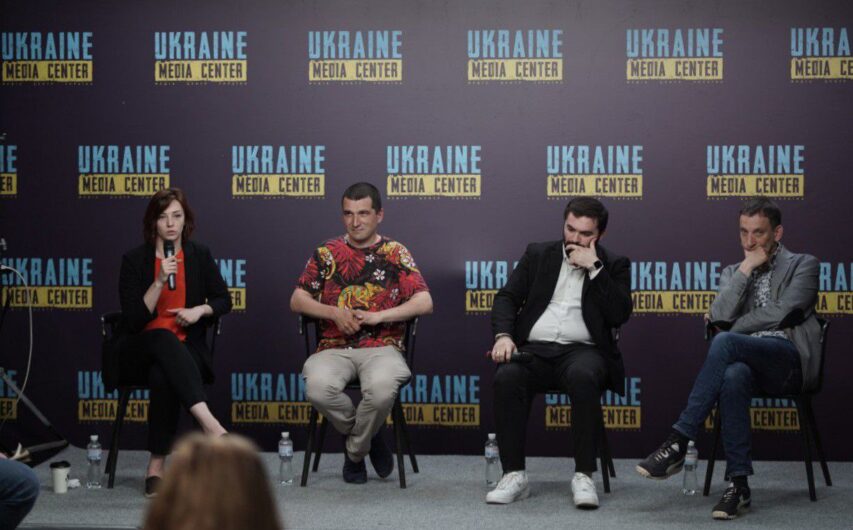
“Standards of Journalism during the War” — a discussion panel with the participation of prominent media professionals took place in Media Center Ukraine
What is the difference between a journalist and a propagandist? Do Ukrainian media professionals have to monitor russian media? These and other topics were discussed by members of the “Standards of Journalism during the War” discussion panel hosted in Media Center Ukraine. Several Ukraine’s prominent media professionals took part in the discussion, including Vitaly Portnikov, journalist and columnist; Otar Dovzhenko, Chair of the Independent Media Council; Andrii Shestak, Director of the Journalism and Communications School of the Ukrainian Catholic University; Zoya Krasovska, media expert and analyst of Lviv Media Forum.
The most interesting quotations from the panel discussion follow below:
Zoya Krasovska, Media Expert, Analyst of Lviv Media Forum
“If we speak about standards, we must, I believe, draw a line. On the one hand, there are standards applicable to the content production – the work we do – and standards for journalists working in the field and their information gathering. On the other hand, in the context of the standards that are important during the war, I believe that managing sources is of the foremost importance… They used to say earlier that one should verify information using two or three sources, but that can still be not enough now.”
Otar Dovzhenko, Chair of the Independent Media Council
“Whenever people talk about standards of journalism, it gives an impression of discussing lofty matters. Let me bring this discussion down to sausage making. What is the sausage made from? From meat. May you put toilet paper and sawdust in your sausage? No, you may not. And what about during the war? Still, you may not… So, this is how we, the researchers from Detector Media, see the war used as an excuse to get rid of standards. As a result, the adherence to standards in the media we reviewed went down significantly. Often, unfortunately, you cannot explain it by the people’s fear of telling something that would harm the army.
Andrii Shestak, Director of the Journalism and Communications School of the Ukrainian Catholic University:
“Standards of journalism keep you up. However, we must remember that we are engaged in a professional activity. One should be able to separate the tragedies that happen from one’s professional activity.
Vitaly Portnikov, journalist and publicist
“I believe we can draw a parallel with medical doctors. Our profession demands our work to be the same, both in an emergency and at a time of peace. So, how can a doctor remain a doctor during the war? It is much more complicated for them, and one can’t compare it with our situation, with all that death, blood, wounds, and the need to operate and help constantly. But doctors will always be doctors because this is their job, and they know, in principle, why they came to this profession. The same applies to journalism. We love our work. But in an extreme situation, it must be as professional and responsible as at a time of peace.
Read more: https://mediacenter.org.ua/news
 Back
Back 